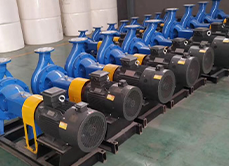Swahili
- Afrikaans
- Albanian
- Amharic
- Arabic
- Armenian
- Azerbaijani
- Basque
- Belarusian
- Bengali
- Bosnian
- Bulgarian
- Catalan
- Cebuano
- Corsican
- Croatian
- Czech
- Danish
- Dutch
- English
- Esperanto
- Estonian
- Finnish
- French
- Frisian
- Galician
- Georgian
- German
- Greek
- Gujarati
- Haitian Creole
- hausa
- hawaiian
- Hebrew
- Hindi
- Miao
- Hungarian
- Icelandic
- igbo
- Indonesian
- irish
- Italian
- Japanese
- Javanese
- Kannada
- kazakh
- Khmer
- Rwandese
- Korean
- Kurdish
- Kyrgyz
- Lao
- Latin
- Latvian
- Lithuanian
- Luxembourgish
- Macedonian
- Malgashi
- Malay
- Malayalam
- Maltese
- Maori
- Marathi
- Mongolian
- Myanmar
- Nepali
- Norwegian
- Norwegian
- Occitan
- Pashto
- Persian
- Polish
- Portuguese
- Punjabi
- Romanian
- Russian
- Samoan
- Scottish Gaelic
- Serbian
- Sesotho
- Shona
- Sindhi
- Sinhala
- Slovak
- Slovenian
- Somali
- Spanish
- Sundanese
- Swahili
- Swedish
- Tagalog
- Tajik
- Tamil
- Tatar
- Telugu
- Thai
- Turkish
- Turkmen
- Ukrainian
- Urdu
- Uighur
- Uzbek
- Vietnamese
- Welsh
- Bantu
- Yiddish
- Yoruba
- Zulu
Telephone: +86 13120555503
Email: frank@cypump.com
Oktoba . 13, 2024 08:03 Back to list
slurry pump expeller
The Role of Expellers in Slurry Pump Applications
In various industrial processes, managing the transportation of abrasive and viscous materials is critical for operational efficiency. Slurry pumps play a vital role in this arena, particularly when it comes to the effective handling of mixtures that consist of solids suspended in liquids. A crucial component in many slurry pumping systems is the expeller, which enhances the performance and reliability of the pump.
What is a Slurry Pump?
A slurry pump is designed to transport slurries—mixtures of solid particles and liquids—over long distances. These pumps are typically utilized in industries such as mining, metallurgy, sewage treatment, and chemical processing. The primary function of a slurry pump is to ensure that the mixture remains in suspension while being moved through pipes, thus preventing sedimentation and blockages that can disrupt operations.
The Function of Expellers
Expellers are mechanical devices attached to the impeller of a slurry pump. Their main purpose is to improve the pump's efficiency and reliability when handling slurries. The expeller works by generating a centrifugal force that creates a barrier, leading to a fluid dynamic that effectively minimizes the chances of solid particles settling within the pump. This dynamic helps maintain a consistent flow and reduces wear on the pump components.
Benefits of Using Expellers in Slurry Pumps
slurry pump expeller

1. Enhanced Efficiency One of the significant advantages of using expellers in slurry pumps is their ability to improve overall pumping efficiency. The expeller aids in maintaining a steady flow rate while minimizing energy consumption. This is particularly important in large-scale operations where energy costs can be substantial.
2. Reduced Maintenance Slurry pumps are often subjected to harsh operating conditions, including the presence of abrasive materials that can wear down pump components. Expellers help mitigate this issue by creating a protective barrier around the pump's internals, thereby reducing wear and tear. This translates to lower maintenance costs and longer service life for the pump.
3. Improved Handling of Viscous Fluids Expellers are particularly beneficial when dealing with viscous slurries that may otherwise be challenging to pump. By maintaining the mixture's flow and preventing sedimentation, expellers ensure that the pump can handle a broader range of materials without compromising performance.
4. Prevention of Backflow Another significant benefit of expellers is their ability to prevent backflow in the system. In applications where a slurry pump must operate against a vacuum or when the system experiences significant pressure changes, expellers can help maintain the integrity of the flow direction, ensuring that solids do not settle back into the pump.
Conclusion
In summary, expellers play a crucial role in enhancing the performance of slurry pumps. Their ability to improve flow efficiency, reduce maintenance needs, and handle challenging pumping conditions makes them invaluable in various industrial applications. As industries continue to demand increased efficiency and reliability from their pumping systems, the integration of expellers in slurry pumps will remain a key focus for engineers and manufacturers alike.
By focusing on technological advancements and the ongoing development of expeller designs, industries can expect to see continued improvements in the management of slurries, ultimately leading to more efficient and cost-effective operations. The combination of slurry pumps and expellers represents a forward-thinking approach to handling complex materials, ensuring that industries can move safely and efficiently into the future.
-
ISG Series Pipeline Pump - Chi Yuan Pumps | High Efficiency, Durable Design
NewsAug.01,2025
-
Advanced Flue Gas Desulfurization Pump with GPT-4 Turbo | Durable & Efficient
NewsJul.31,2025
-
ISG Series Vertical Pipeline Pump - Chi Yuan Pumps | Advanced Hydraulic Design&Durable Construction
NewsJul.31,2025
-
ISG Series Vertical Pipeline Pump - Chi Yuan Pumps | Energy Efficient & Low Noise
NewsJul.31,2025
-
pipeline pump - Chi Yuan Pumps Co., LTD.|High Efficiency&Low Noise
NewsJul.31,2025
-
ISG Series Vertical Pipeline Pump - Chi Yuan Pumps Co., LTD.|High Efficiency, Energy Saving, Low Noise
NewsJul.30,2025










